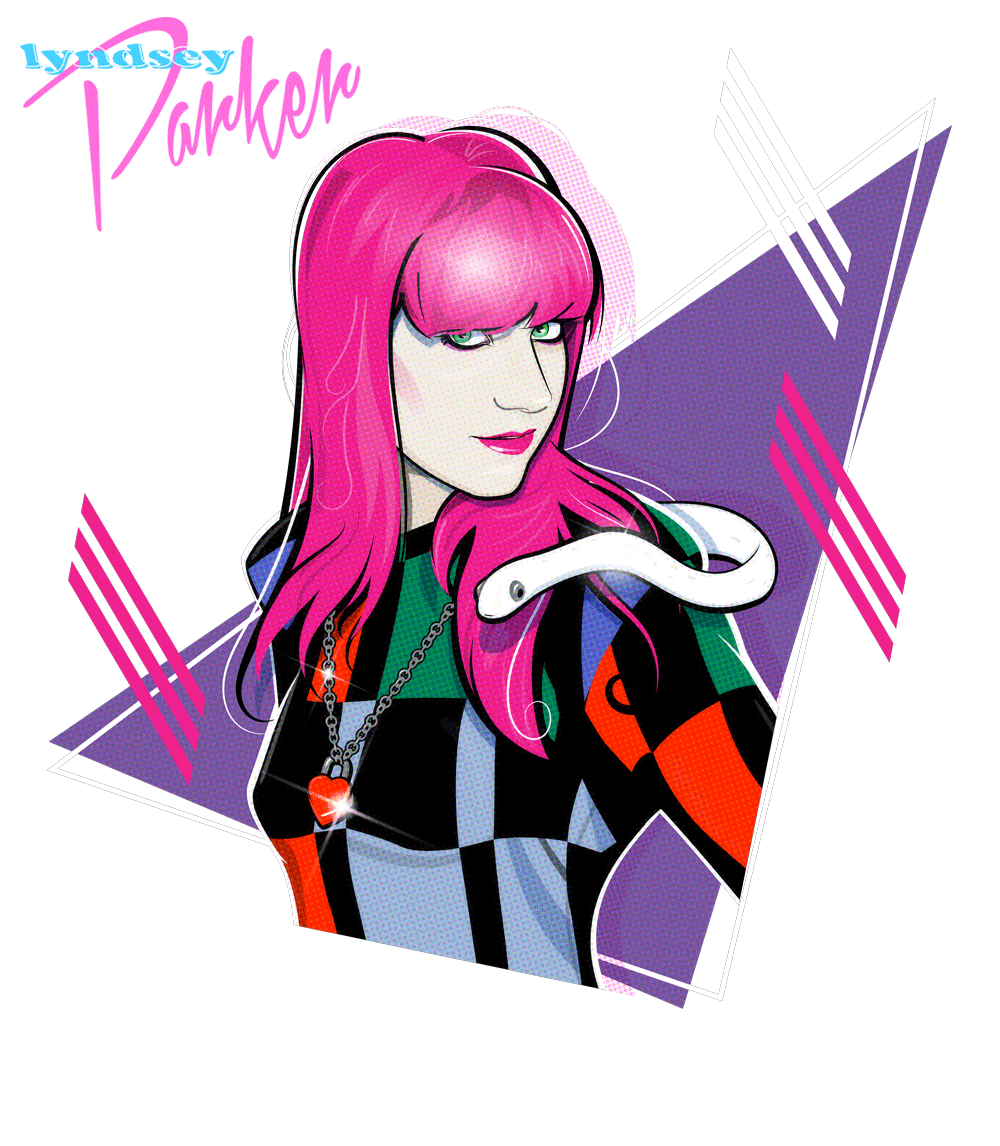
(Shirley Manson at the 2016 KROQ Weenie Roast. Photo by Kevin Winter/Getty Images)
The ‘90s were a wonderfully creative, prolific, and supportive time for “Women in Music” – as trite as that magazine-headline catchphrase may have been. Lilith Fair was raking in revenue; singer-songwriters like Jewel, Lauryn Hill, Shawn Colvin, and Alanis Morrisette were scooping up Grammys; co-ed and female-driven bands like Sleater-Kinney, Hole, Sonic Youth, the Breeders, No Doubt, Belly, and Veruca Salt ruled at alt-rock radio; Riot Grrls and opinionated, unapologetic artists like PJ Harvey and Liz Phair were giving young women a real voice. And at the forefront of it all was Shirley Manson, the fierce, fabulous, feminist frontwoman of electrorock pioneers Garbage.
But sadly, two decades later – as Garbage independently release their excellent sixth studio album, Strange Little Birds, and Manson nears her 50th birthday – it almost seems like the ‘90s never happened. Female stars may dominate the pop charts, but rock ‘n’ roll is a boys’ club once more. Manson can’t help but notice that many of the doors she and her peers kicked open with their Doc Martens-shod feet have closed again. But interestingly, Manson blames her own generation for this disheartening development.
“I think things have regressed – quite considerably, actually – and I think it’s just a matter of women taking their eye off the ball,” she frankly tells Yahoo Music. “In the ‘90s, there were a lot of alternative perspectives coming from women, and we had assumed our children were going to have the same opportunities. But human rights have to be constantly attended to, like a garden – you can’t secure a human right and then walk away from it and assume it will stay in place… I think that’s what’s happened. I feel it’s my generation’s fault.
“We didn’t imbue our children with a sense of urgency and paranoia,” she elaborates. “I feel we maybe failed our young women. We probably should have said, ‘You need to wake up and stay alert, and make sure you secure your rights every day. Speak up when you see injustice. Speak up when you encounter sexism!’ I don’t think we did that, because we’d just broken through the glass ceiling ourselves and probably assumed that the glass ceiling would stay open. And it didn’t. It fell back in.”
Now Manson worries that today’s girls don’t have the basic tools to counteract the sexism that women in music – and women in general – have always faced. “Of course I encountered a lot of sexism [when I started out], and still do on occasion; I’m a woman working in a patriarchal system,” she says. “But luckily for me, I am an incredibly forthright, confident, aggressive woman. I was reared by two very powerful, strong women and a father who also supported the idea that girls were equal to their male counterparts. So there was never a moment when I believed I was less-than. I will always meet a man toe to toe, and when I encounter sexism, I f—ing push right on through it. But I am afraid that there are lots of women who are not necessarily raised that way, or are just less forthright and [less able] to articulate themselves as easily as I am… so those women don’t flourish in what is essentially a patriarchal system.”
Another unfortunate result of the music business’s patriarchy is ageism, especially in a pop market that has increasingly fetishized teenage Disney, YouTube, and Vine stars in recent years. Manson, who is proud of her age and long recording history, laments: “I feel like the system wants women to be infantilized, because it works for the system. They want us to stay young enough, pretty enough, thin enough. And that, to me, is a serious distraction.”
Madonna is one fiftysomething musician who’s been very vocal about discrimination against aging divas, but when asked about Madonna’s outspokenness on the matter, Manson says, “When I look at Madonna, I think Madonna should not give a f— what anybody has to say about her age. She should explore who she is now. It would be infinitely more interesting [than her] being concerned with whether we find her sexy or not. She’s got so much more to offer than that. She should be like, ‘Kiss my ass. I’m Madonna. I may be old, but I will always have my legacy behind me and you motherf—ers won’t!’ I don’t know why she cares so much.”
Manson does acknowledge that being known as a sex symbol is “a hard thing to give up on” – not just for Madonna and other music stars, but “for every woman. It’s not easy to let go of that. But you have to have the confidence to make that jump and understand that you have so much more to offer as a woman than your beauty and your youth. That’s why I always encourage women to have a second act. It’s great being beautiful and sexy, but have something else in your pocket. Age comes to us all; we can’t escape it, no matter how much Botox we put in our faces or what beautiful clothes we wear… And let’s make no mistake: When a woman [who’s had work done] walks in the room, no one thinks, ‘Oh wow, here comes a 20-year-old!’”
However, despite the obstacles she may face as a 49-year-old music veteran, and the changes she’s noticed in the business since the more female-friendly 1990s, Manson maintains an optimistic outlook for the future of women in music. Strange Little Birds is the strongest album Garbage have released since Version 2.0 (and the darkest, angriest, and angsty-est since their 1995 self-titled debut), and she also sees that old ‘90s fighting spirit returning in a new generation of rising artists, from Sky Ferreira and Grimes to Courtney Barnett and Elle King. “Ohhhh yeah, [‘90s girls are] back! It’s wonderful to see. It’s exciting,” she enthuses.
Manson also stresses, “I love men, and I certainly don’t want to live in a matriarchy… and I don’t think most men want to oppress women. I really don’t believe that at all. Of course, there’s always going to be a minority of men who do want to oppress, but in general, I think men are totally cool with women being equal. I think they want their daughters or their mothers or their wives to have advantages in the world. I think the most important thing we can all do as women is encourage the men that we love to join us as feminists and speak up about equality, too.
“Because until that happens, I think it’s going to be very difficult to shift the patriarchy in a significant way.”
Follow Lyndsey on Facebook, Twitter, Instagram, Google+, Amazon, Tumblr, Vine,Spotify
This article originally ran on Yahoo Music.







